The Excruciating Necessity of 'Never Rarely Sometimes Always'
The film is the purest depiction of what it means to seek an abortion in 2020 in America.


There are some movies you can only watch once. Requiem for a Dream comes to mind, the day-glow horror show about drug addiction that pressed imagery of infected veins deeply, indelibly into our brains. Or A Clockwork Orange, with its whimsical rape and eyelid-peeling torture scenes. Never Rarely Sometimes Always—which drew major attention at the Sundance and Berlin film festivals and was released on VOD on April 3—is much quieter in its devastation, more tedious in its cruelty, but, still, you might only stand it for one sitting. That’s because it’s a movie about abortion in America.
The movie’s stars would rather not describe it as such. “It's about a lot more than abortion, that's for sure,” actress Talia Ryder tells Marie Claire. Ryder plays Skylar, the cousin-friend of 17-year-old Autumn, whom she accompanies on a trip from small-town Pennsylvania to New York City to obtain an abortion. “If I was describing the movie to someone that didn't know anything about it, I would probably say it's the first movie I've ever seen completely, honestly depicting a true heroic female journey.”
Indeed, the decision to get an abortion is foregone, not agonized over. And so the plot is that of a fantastical and miserable quest, like The Lord of the Rings or The Wizard of Oz, except the monsters are leering men and deceitful medical personnel and relentless, mind-bending legal hurdles. Each new disappointment, each door closing, presents rising anxiety and rage; the teenage characters, meanwhile, can only nod and blink back tears and trudge on.
The movie rests on these two girls, literally; in long, tight shots of their faces and hair, their fingers probing for money or a belly bruised purple from an attempt to self-abort. The camera always sits nearly within a foot of Ryder and Autumn, played by newcomer Sidney Flanigan, as a hundred quiet kindnesses pass between them. “Skylar just, automatically, without thinking, [is] on board to help her cousin in this way,” Flanigan explains. “They're going through this crazy crisis together… and there's a lot of stress. They are getting a little agitated with each other.” Ultimately, though, “They overcome it together. I think they only end up closer.”
The director and writer of Never Rarely Sometimes Always, Eliza Hittman—who plumbed the bleak repercussions of teenage sexual exploration in her two previous feature films, It Felt Like Love (2013) and Beach Rats (2017)—makes several disquieting choices throughout the script. One is the decision to place the girls in Pennsylvania, a state that’s not necessarily associated with restrictive abortion laws. Still, Autumn can’t get the procedure without parental consent, and so they set off in a series of buses toward New York City.
“I did a lot of research on the topic of abortion tourism, and I spent some time at Planned Parenthood and other clinics just trying to get a better sense of where women travel from. Pennsylvania kept coming up,” Hittman tells Marie Claire. “I thought it was interesting to set the film only three hours outside of the city—we might as well be traveling back in time.”
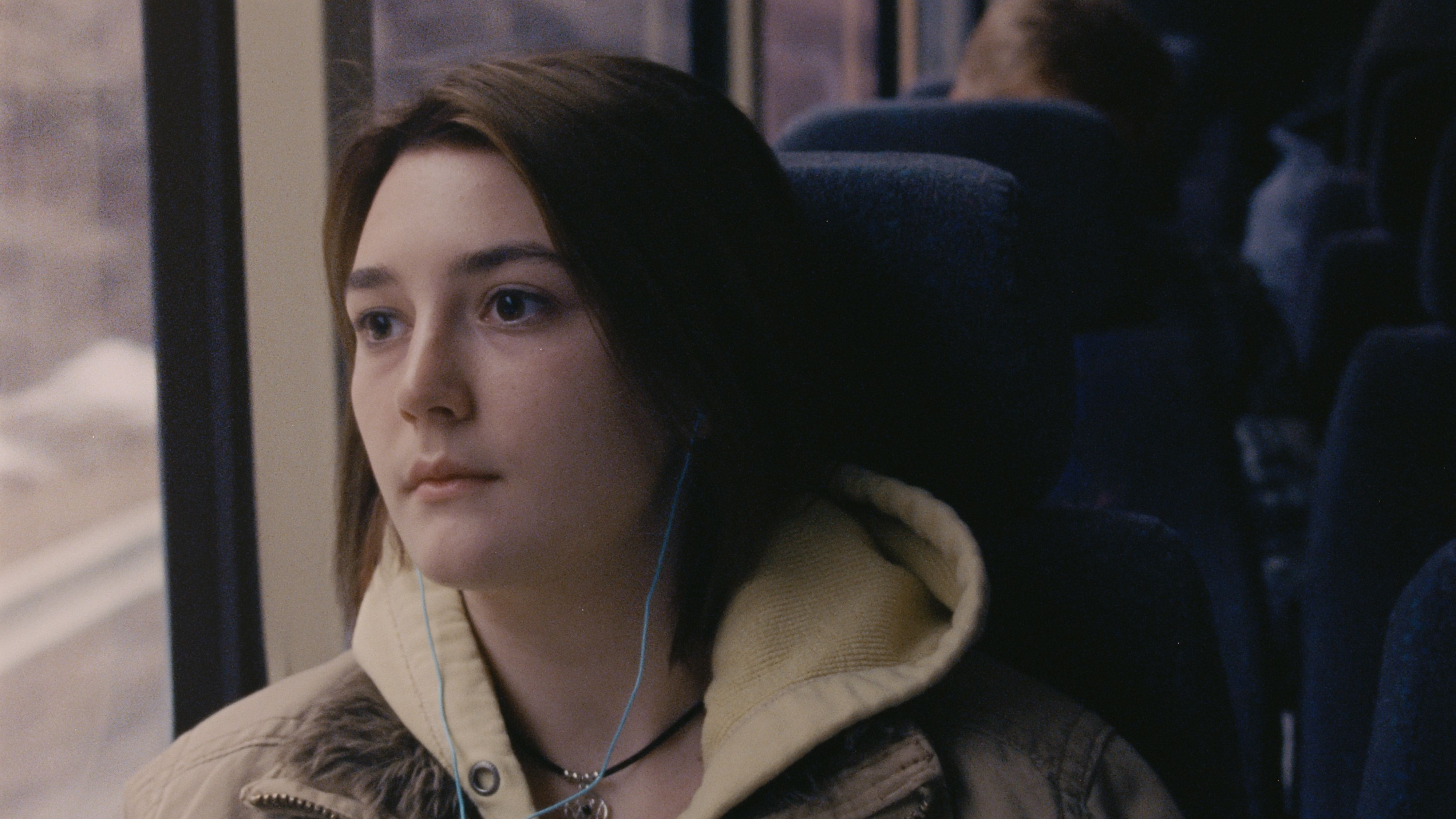
false' caption='Autumn (Sidney Flanigan) on a bus on her way to obtain an abortion.
Then there’s the fact that every single male character, from the girls’ grocery-store boss to their classmates to Autumn’s stepfather, is loathsome or predatory. The teen girls must flee a subway car when a man begins to expose his penis, pull their cheeks into tiny, hard smiles when their boss flirts, or reluctantly give their phone number to a boy just to end his aggressive come-on. After the fifth time this happens, viewers may find themselves tensing or flinching or feeling exhausted whenever a man appears on screen. The teenage girls don’t, though, absorbing every blow. The movie defines the female experience as this: to take it and take it and take it.
Stay In The Know
Get exclusive access to fashion and beauty trends, hot-off-the-press celebrity news, and more.
“Growing up, so much of that process is learning to navigate unwanted male attention. I wanted to represent it in the film,” Hittman says, noting that those interactions create “tension around them at all times throughout the narrative.”
Flanigan, at 21, is long-accustomed to these routine horrors. “I think you started learning from a really young age. When you're a kid and boys tease you in school, they tell you that just means he likes you, or boys will be boys,” she says. “It just gets worse as you go into adulthood.”
An emotional break comes in the pivotal, excruciating, 11-minute scene that gives the movie its title. A Planned Parenthood counselor gently asks a series of psychological screening questions: Has your partner made you have sex when you didn’t want to? Never, rarely, sometimes, always?
“Trying to dig around for that emotional headspace was pretty intense,” says Flanigan, who’s also a singer-songwriter. She listened to a lot of Bright Eyes during filming. “Being my first time acting, I wasn't really sure at first what I was doing at all… There's words but the words only go so far and you have to use your face, too, to express everything that's going on.”
A post shared by talia ryder (@taliaryder)
A photo posted by on
Yes, it’s a grueling film, and a viewing experience unlikely to change the minds of those on either side of the debate. A pro-choice feminist might find themselves more hopeless about the legislative cluster migraines that routinely terrorize women in certain states; an anti-choicer might be relieved to see that the process is so difficult. It’s the purest depiction of what it means to seek an abortion in 2020 in America. Which means the film is important and awful.
Still, Flanigan and Ryder and Hittman hope you might spend your coronavirus isolation time watching it. “Frankly, right now a lot of people have a lot of time on their hands. That's a good time, I think, to reflect and to have these discussions and focus a little more on issues like these,” Flanigan says. If anything, coronavirus is just another current event into which abortion has been inserted. “There are states, such as Texas, that are taking advantage of coronavirus to push their anti-abortion agenda. That only makes it more urgent.”
Ryder, chatting between Zoom classes for her abruptly-ended senior year, adds, “I hope that teen girls and any person with a uterus watching the movie finds sanctuary in the story, because it's approached in a really, really honest way.” She has plans to play Minecraft with her friends later that night—their attempt to socialize during the pandemic. When I apologize for her terrible final year of high school, she says, “It's okay. It's what you've got to do.”
For more stories like this, including celebrity news, beauty and fashion advice, savvy political commentary, and fascinating features, sign up for the Marie Claire newsletter.
RELATED STORIES


-
 Taylor Townsend Sea Mosses Her Way to Better Wellness
Taylor Townsend Sea Mosses Her Way to Better WellnessThe tennis star serves up self-care between sets.
By Siena Gagliano
-
 What to Know About the Cast of 'Resident Playbook,' Which Is Sure to Be Your Next Medical Drama Obsession
What to Know About the Cast of 'Resident Playbook,' Which Is Sure to Be Your Next Medical Drama ObsessionThe spinoff of the hit K-drama 'Hospital Playlist' features several young actors as first-year OB-GYN residents.
By Quinci LeGardye
-
 Duchess Sophie Stepped Up to Represent King Charles at Event Amid Calls for King Charles to "Slow Down"
Duchess Sophie Stepped Up to Represent King Charles at Event Amid Calls for King Charles to "Slow Down"The Duchess of Edinburgh filled in for The King at the Royal Military Academy Sandhurst.
By Kristin Contino
-
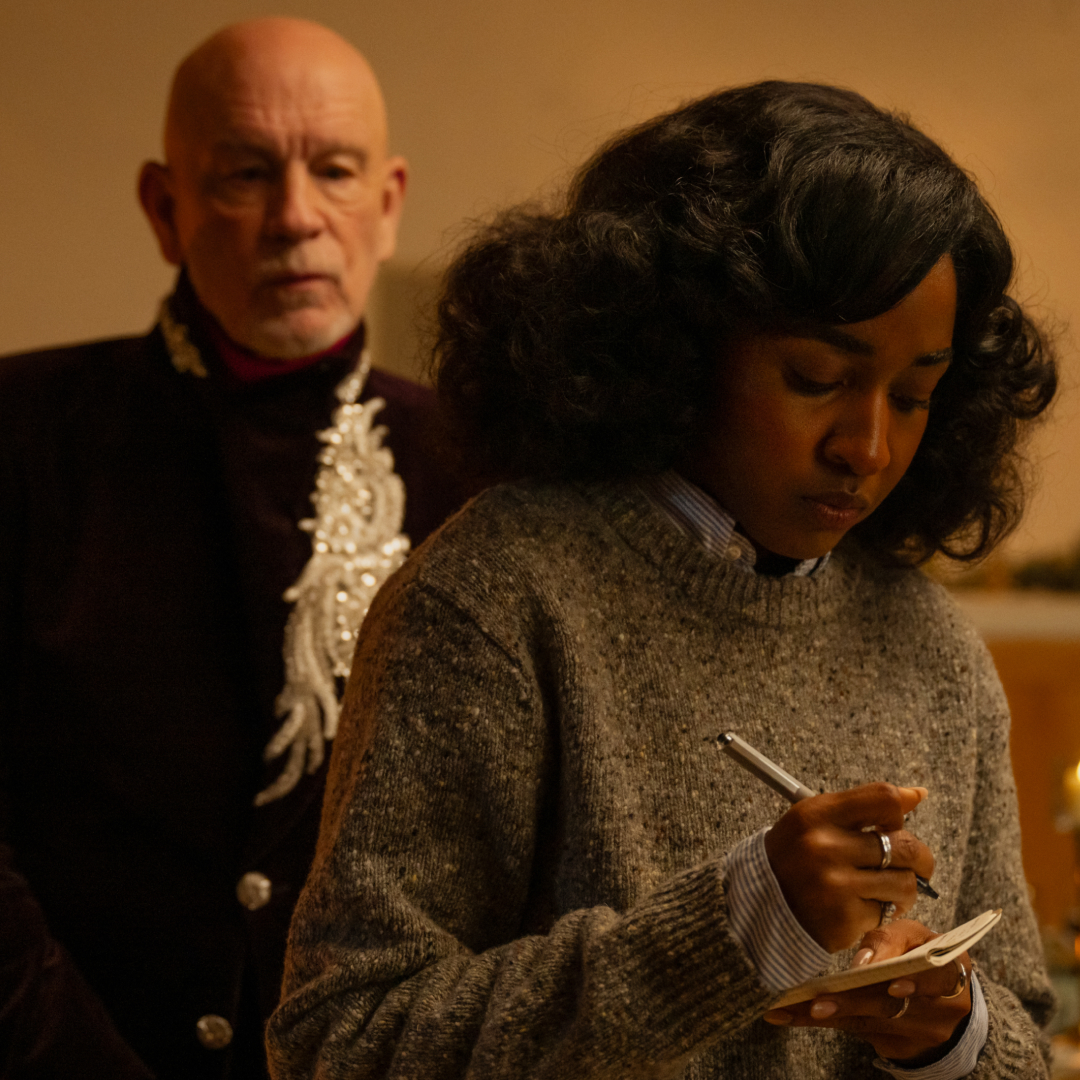 In 'Opus,' Cult Leaders and Pop Stars Are One in the Same
In 'Opus,' Cult Leaders and Pop Stars Are One in the SameThe A24 film's costume and production designers open up about crafting fictional pop icon Moretti’s style and mysterious estate.
By Sadie Bell
-
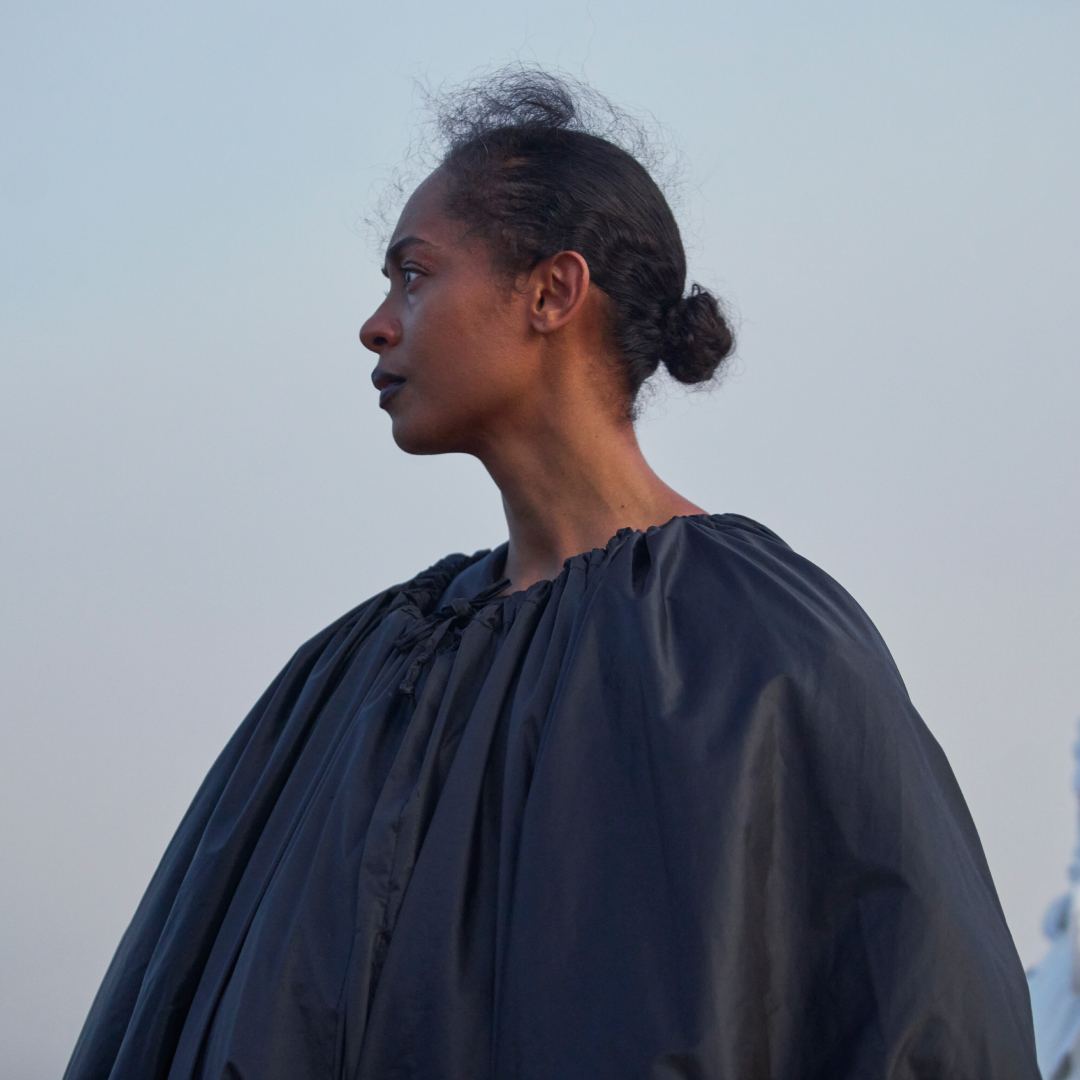 'On Becoming a Guinea Fowl' Is a Revolutionary Call to Speak Up Against Female Abuse
'On Becoming a Guinea Fowl' Is a Revolutionary Call to Speak Up Against Female AbuseAfter showing how a culture of silence around abuse can devastate entire generations, the arresting A24 film holds a mirror up to the audience and asks, \201cWhat happens if we scream?\201d
By Quinci LeGardye
-
 'Anora' Star Mikey Madison Takes Home the Best Actress Award at the 2025 Oscars in a Surprise Win
'Anora' Star Mikey Madison Takes Home the Best Actress Award at the 2025 Oscars in a Surprise Win"I will continue to support and be an ally."
By Quinci LeGardye
-
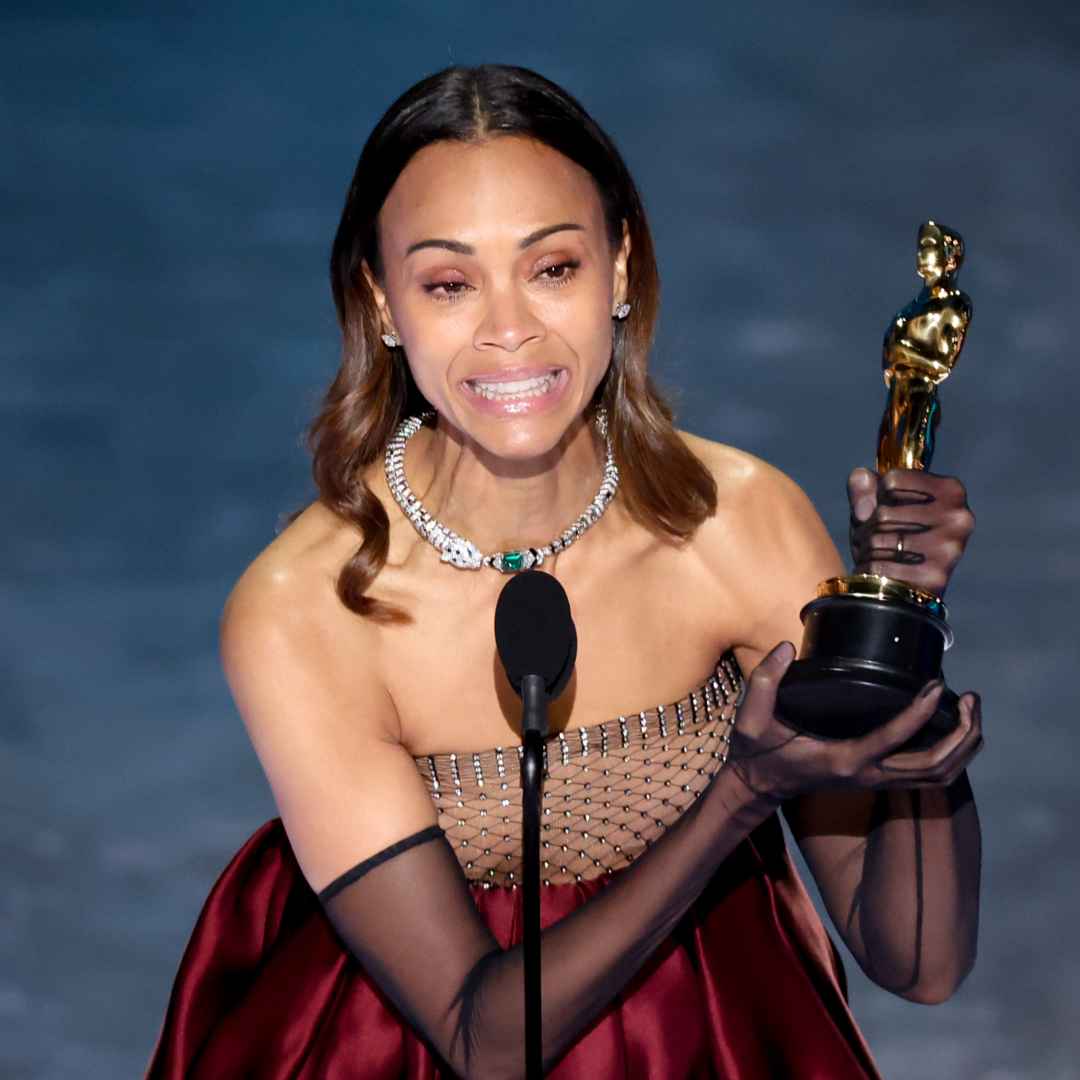 Zoe Saldaña Becomes the First American of Dominican Origin to Win an Oscar
Zoe Saldaña Becomes the First American of Dominican Origin to Win an Oscar"I am the first American of Dominican origin to accept an Academy Award and I know I will not be the last."
By Quinci LeGardye
-
 LISA, Doja Cat, and Raye Perform a Glamorous 'James Bond' Tribute at the 2025 Oscars
LISA, Doja Cat, and Raye Perform a Glamorous 'James Bond' Tribute at the 2025 OscarsThe Academy Awards are for the pop girls, actually.
By Quinci LeGardye
-
 Ariana Grande and Cynthia Erivo Open the 2025 Oscars With a Showstopping 'Wicked' Performance
Ariana Grande and Cynthia Erivo Open the 2025 Oscars With a Showstopping 'Wicked' PerformanceThe awards show began with a medley of songs inspired by the Best Picture-nominated film and adaptations of 'The Wizard of Oz.'
By Quinci LeGardye
-
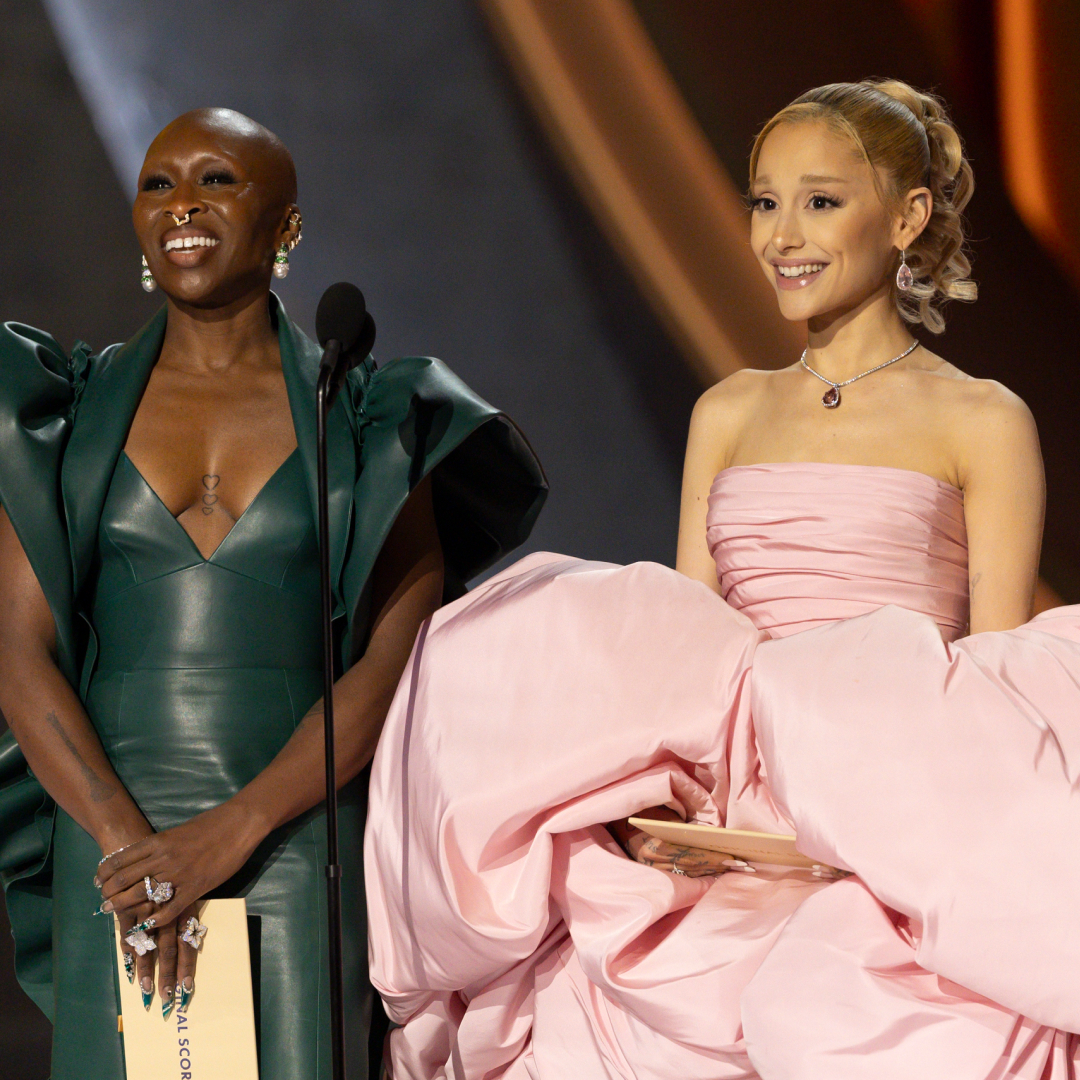 Everything to Know About the 2025 Oscars, From How to Watch to the Nominations
Everything to Know About the 2025 Oscars, From How to Watch to the NominationsIt's bound to be an unpredictable awards show.
By Quinci LeGardye
-
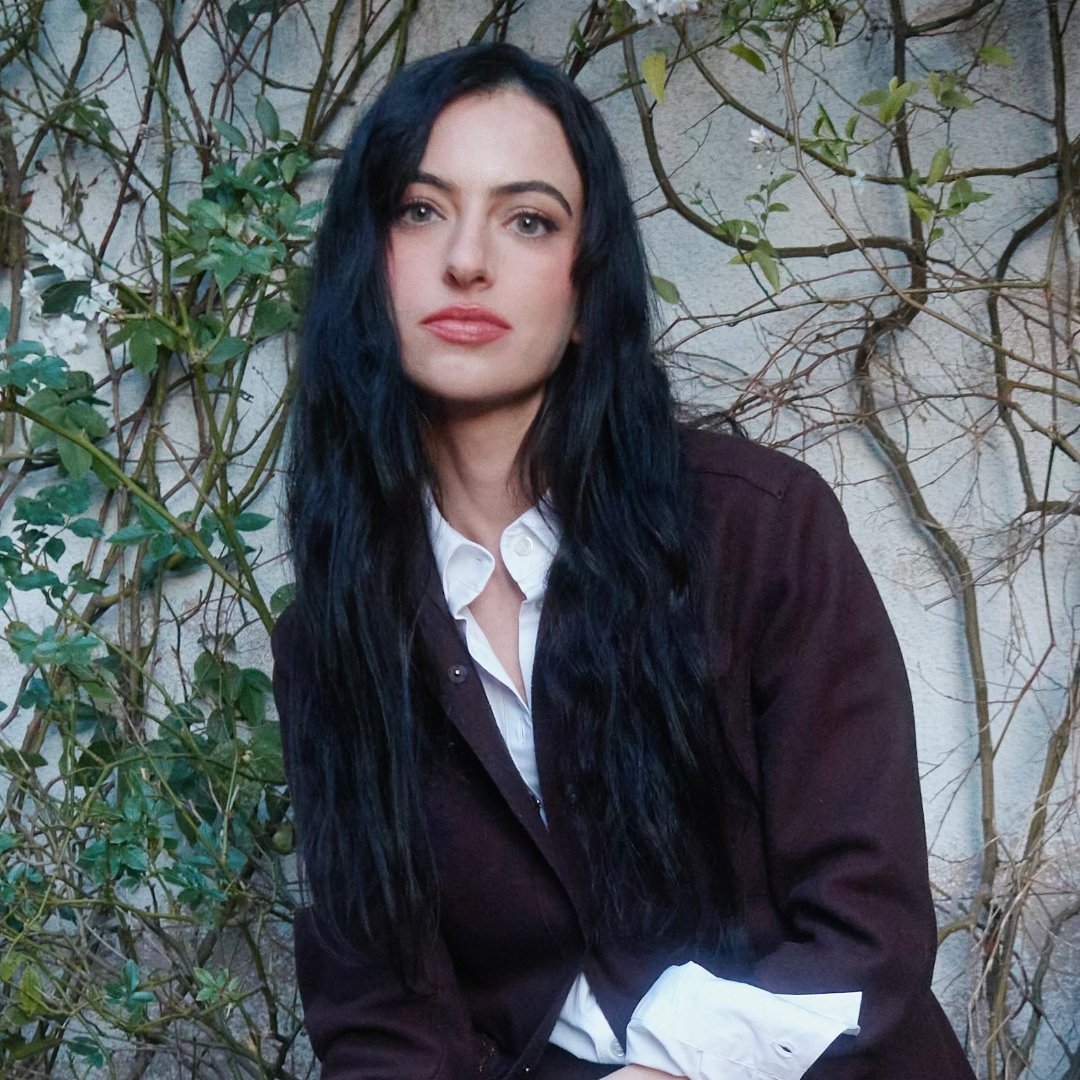 Cazzie David Spent Five Years Fighting to Make an "Anti-Rom-Com" About Emotional Abuse
Cazzie David Spent Five Years Fighting to Make an "Anti-Rom-Com" About Emotional AbuseThe writer/actress opens up about how she found catharsis after a breakup by making 'I Love You Forever.'
By Sadie Bell